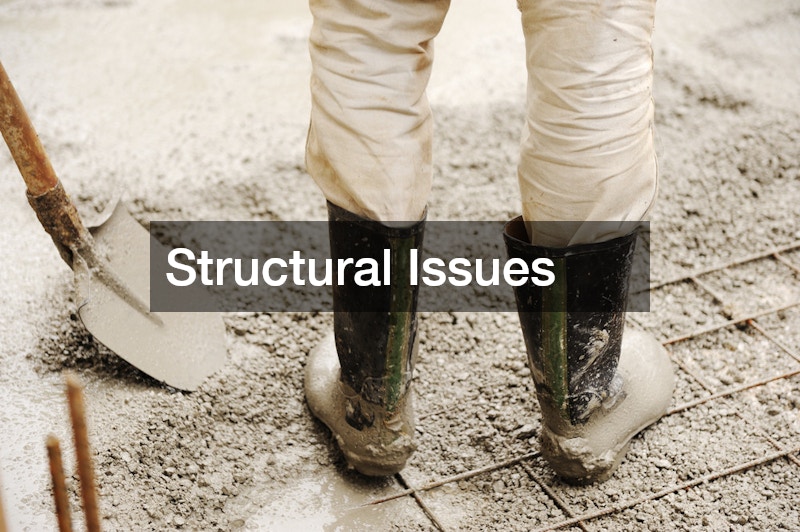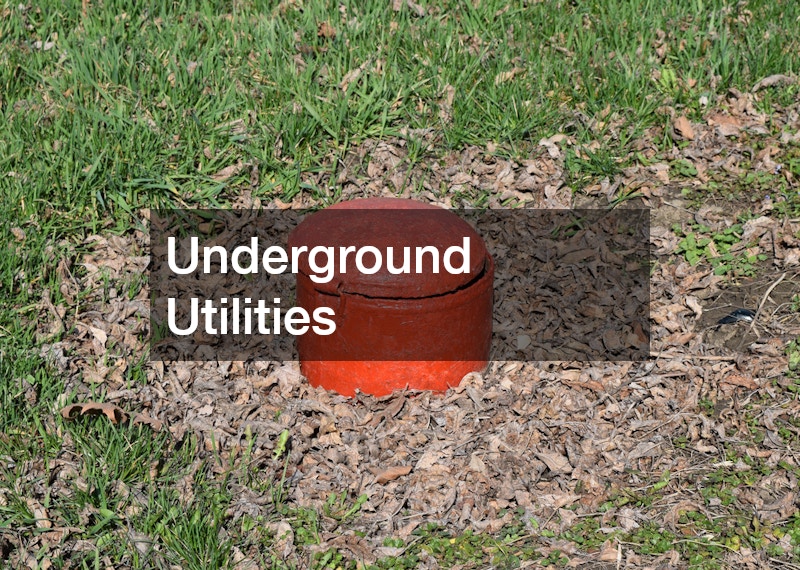Introduction
For building investors, understanding the myriad of issues that can affect their properties is essential for maintaining value and ensuring tenant satisfaction. Properties have a range of structural components that require constant attention; neglect can lead to costly repairs and diminished return on investment. This article will cover crucial areas such as structural issues, HVAC services, and more, each playing a significant role in the health and functionality of a property. Building investors need to be proactive in addressing these areas, as even minor problems can escalate into serious complications if left unchecked.
Structural Issues

One of the most pressing concerns for building investors is the structural integrity of their properties. Roof repairs are often among the first indications of broader issues, such as leaks and water damage, which can degrade other elements of the building. Investors should conduct regular assessments and promptly address any signs of wear or damage to the roof to prevent far-reaching consequences.
In addition to roof repairs, walls, and foundations often face issues such as cracking and settling, which could signal serious structural problems. Building investors must prioritize the hiring of qualified professionals for evaluations to ensure any detected issues are dealt with promptly. Ignoring structural concerns can deter potential tenants and decrease the property’s overall value.
Ensuring compliance with building codes during structural repairs is vital. Regulations may differ by region, and building investors should consult with general contractors to navigate these complexities. This will not only guarantee safety but also avoid potential legal implications that can arise from improper renovations.
Heating and Cooling
An efficiently functioning HVAC system is crucial for tenant comfort and retention; hence, building investors must prioritize regular maintenance and timely repairs. HVAC services should be contracted for frequent inspections to ensure systems operate at peak efficiency. Issues such as poor airflow or unexpected temperature fluctuations may signal deeper problems that need immediate attention.
Moreover, investors should consider the age and technology of their HVAC systems, as older models may be less efficient, leading to higher energy bills. An upgrade to energy-efficient systems can significantly reduce operational costs while appealing to environmentally conscious tenants. Regular maintenance checks can uncover possible upgrades and ensure that heating and cooling systems serve the property well.
Investors may also benefit from understanding common HVAC issues that require attention, such as thermostat malfunctions, duct leaks, and compressor problems. By being informed, they can identify potential service needs earlier and impact their property management more effectively. Working with reputable HVAC services can ensure quality repairs and maintenance, ultimately enhancing tenant satisfaction.
Costly Repairs
As properties age, the potential for costly repairs heightens, making it critical for building investors to stay ahead of maintenance needs. Water heater companies offer a critical service; old or failing water heaters can lead to significant damage, increased utility costs, and tenant complaints. Regular inspections and timely replacements can mitigate these headaches and preserve the property’s value.
Moreover, it is essential to understand the typical lifespan of appliances and systems within a building. For example, water heaters generally last between 8 to 12 years, and being mindful of these timelines allows investors to come up with a financial plan for replacements. Proactive management can prevent unexpected expenses that can disrupt cash flow.
Finally, investing in a comprehensive homeowners insurance policy that covers extensive repairs can shield building investors from substantial financial shocks. Policies should ideally account for both routine maintenance and unexpected failures, ensuring that investors are prepared for whatever challenges arise. Proper budgeting for these potentially costly scenarios allows property owners to make informed financial decisions.
Underground Utilities

Underground utilities are often overlooked but can pose significant challenges for building investors. When issues arise with sewer lines, contacting a reputable sewer repair company promptly is essential to address the problem before it escalates. Neglecting underground utilities can lead to extensive property damage and hefty repair costs.
Regular maintenance checks of underground utilities can help identify potential problems early on. Investors should work with their sewer repair company to implement routine evaluations and be informed about potential risks that can compromise the property. Addressing these potential issues proactively can save time, money, and frustrations in the long run.
Building investors should also ensure that local utility companies are well-informed about their property infrastructure, including any renovations or changes. This knowledge will mitigate risks of damaging existing utilities during updates or repairs, facilitating smoother operations whenever work is being conducted. An understanding of underground utility systems is crucial for successful property management.
Annual Maintenance
For building investors, investing in annual maintenance checks can be a game-changer for preserving property value and tenant satisfaction. Regular checks of critical systems, such as pump services, can prevent pitfalls that often arise from neglect or lack of oversight. Keeping all systems in good working condition allows investors to feel secure in their investments and prevent costly repairs.
In addition to exceptional performance, well pump services can help ensure that tenants have consistent access to essential utilities. Regular inspection schedules can identify issues before they become problematic. An efficient maintenance plan can significantly reduce downtime and maintain tenant confidence in the property.
Annual maintenance should also cover cosmetic aspects of the building, giving tenants a pleasant living environment. Simple tasks such as landscaping, painting, and repairing fixtures play a role in tenant satisfaction and property appeal. It’s important for building investors to develop and stick to a comprehensive maintenance schedule that addresses both critical systems and aesthetic qualities.
Electrical Issues
Electrical repairs can often seem daunting for building investors, but neglecting these issues can lead to severe consequences. From minor flickering lights to complete power failures, problems within the electrical system warrant immediate attention. Building investors should always consider hiring licensed electricians to manage these types of repairs to ensure safety and compliance with local codes.
In addition to repairs, updating older electrical systems can significantly enhance tenant safety and living conditions. An investment in modern circuit breakers and wiring can protect against electrical fires and ensure systems adequately support current technological demands in properties. An informed investor should always be aware of the signs indicating electrical issues that need to be addressed immediately.
Regular safety inspections of electrical systems can also help identify any signs of deterioration or inadequate capacity for modern living. Building investors should establish periodic checks on their properties to ensure all electrical components are up to par. By maintaining a responsive approach to electrical issues, investors can enhance the longevity of their properties and the safety of their tenants.
Security Problems

For building investors, securing their properties is a vital aspect of management. Issues with doors, including broken locks and hinges, can lead to severe security vulnerabilities. Implementing timely door repairs is essential for maintaining the safety of tenants and preserving the property’s reputation in the market.
Investors should prioritize the installation of quality door security systems, integrating smart technology where possible. Monitoring access through digital locks adds an extra layer of protection and attracts tenants who prioritize security. Regular evaluations of all entry points can help identify areas that require bolstering for improved safety.
Engaging security professionals to assess vulnerabilities can also be beneficial; they can provide recommendations tailored to the property’s unique needs. Building investors must take a proactive stance, consistently measuring and optimizing their properties’ security to create a safe living environment for tenants. Maintaining a sense of safety encourages tenant retention and elevates property value.
Driveway Repairs
The condition of a property’s driveway can significantly influence first impressions and overall property value for building investors. Cracks and uneven surfaces not only detract from curb appeal but can also pose potential safety hazards for tenants and guests. Regular maintenance through a concrete repair service can keep driveways looking their best and ensure they remain functional and safe.
Investors should make it a priority to assess the driveway and schedule repairs as needed. Investing in a quality concrete repair service can provide long-lasting solutions that look professional and add value to the property. Additionally, by addressing any surface issues promptly, property managers can prevent further degradation that could lead to more extensive and costly repairs in the future.
Moreover, building investors can consider enhancements such as proper drainage systems to ensure longevity after repairs. Proper drainage prevents water accumulation, which can degrade concrete over time. Ensuring the integrity of driveways not only boosts aesthetic appeal but also enhances the practicality of the property.
Safety Hazards
Safety hazards can be a significant concern for building investors; addressing these should be a top priority. Regular inspections, including assessments of garage door mechanisms, are necessary to ensure they function properly without posing risks. Ensuring the effectiveness of garage door repair can prevent injuries and potential liabilities, contributing positively to property management oversight.
In addition to mechanical issues, fire safety should also be a component of the investor’s management strategy. Building investors should routinely check smoke detectors, fire extinguishers, and emergency exits to ensure compliance with safety regulations. A comprehensive approach to safety helps establish a culture of care and responsibility within the property.
Investing in safety improvements and regular maintenance can not only secure investor liability but also strengthen tenant loyalty. When tenants feel safe and secure in their living environment, they are more likely to renew their leases and maintain a positive attitude toward property management. Ultimately, a commitment to safety can reflect positively on the building investor’s brand image and reputation.
Recruiting Help

Building investors often need to rely on skilled professionals to manage various aspects of property management effectively. General contractors can provide invaluable support, overseeing everything from small repairs to extensive renovations. They can help navigate the complexities associated with renovations, ensuring compliance with building codes and standards.
Choosing the right general contractor is crucial; building investors should thoroughly vet candidates by checking references, reviewing previous work, and understanding their area of expertise. By partnering with experienced contractors, investors can ensure that projects are completed on time, within budget, and to high standards. This collaboration can make a significant difference in the success and profitability of building investments.
Moreover, networking with other real estate professionals can provide building investors with a resourceful database of skilled tradespeople. Building rapport with reliable contractors and services can ease future challenges that arise in property management. Networking not only fosters relationships but also enhances investor knowledge of local regulations and market conditions.
Conclusion
In conclusion, navigating the complexities of property management requires building investors to take a multidimensional approach. From addressing structural issues with timely roof repairs to ensuring tenant safety through electrical repairs and door security, every aspect poses opportunities and challenges. By staying informed, following these suggestions and tips, and proactive about each critical area covered in this article, investors can preserve their property values, enhance tenant satisfaction, and ultimately boost their return on investment.
Proactive management is key to staying ahead of potential challenges. This means not only reacting to visible issues but also anticipating problems through regular inspections and preventive measures. Whether it’s conducting routine assessments of HVAC systems, updating older electrical setups, or inspecting underground utilities, a forward-thinking approach minimizes disruptions and keeps tenants satisfied. Consistent communication with professionals, from general contractors to security consultants, allows building investors to maintain a well-rounded strategy for property oversight. Furthermore, prioritizing tenant comfort and safety fosters trust and loyalty, directly influencing retention rates and property profitability.
A well-maintained property attracts quality tenants, reduces vacancy periods, and positions the investor as a responsible and reliable manager. Investors who prioritize long-term strategies and maintain a steady hand through challenges will witness a continuous improvement in property value. Ultimately, understanding the interconnected nature of these issues and striving to address them holistically will yield exponentially greater rewards for building investors. By committing to regular repairs, maintenance, and innovative upgrades, properties can thrive under their management, ensuring a bright and profitable future.
Success in real estate investment is not just about acquisition but about continuous, thoughtful stewardship of assets, fostering a legacy of sustainable growth and enduring profitability


